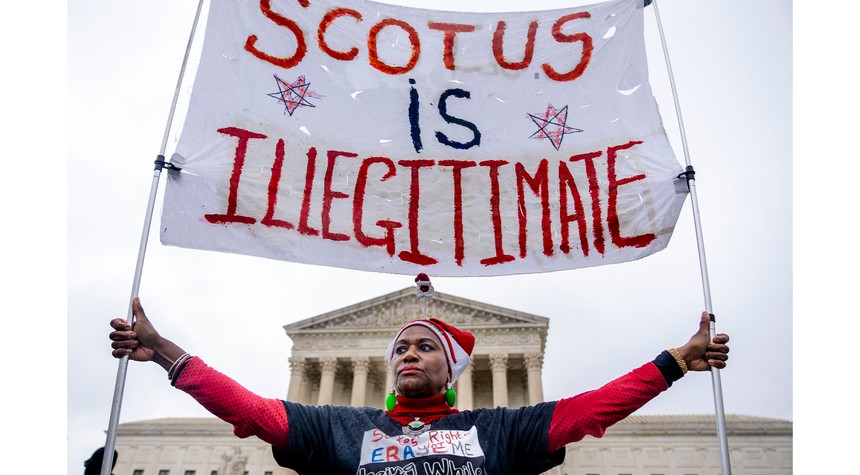BREAKING: SCOTUS Rules Against Biden Administration on Student Loan Forgiveness
 By Jennifer Oliver O'Connell
By Jennifer Oliver O'ConnellIn another 6-3 decision, the Supreme Court of the United States has ruled in favor of the states in Department of Education et al v. Brown et al. that the HEROES Act does not authorize President Joe Biden to implement his student loan debt relief plan. As seems to be the trend this SCOTUS cycle, Senior Justice Sonia Sotomayor and Associate Justice Ketanji Brown Jackson have dissented.
From the ruling:
The issue presented in this case is whether the Secretary has authority under the Higher Education Relief Opportunities for Students Act of 2003 (HEROES Act) to depart from the existing provisions of the Education Act and establish a student loan forgiveness program that will cancel about $430 billion in debt principal and affect nearly all borrowers. Under the HEROES Act, the Secretary “may waive or modify any statutory or regulatory provision applicable to the student financial assistance programs under title IV of the [Education Act] as the Secretary deems necessary in connection with a war or other military operation or national emergency.” §1098bb(a)(1). As relevant here, the Secretary may issue such waivers or modifications only “as may be necessary to ensure” that “recipients of student financial assistance under title IV of the [Education Act affected by a national emergency] are not placed in a worse position financially in relation to that financial assistance because of [the national emergency].”
Since Biden signed his executive order in August of 2022, the issue has been hotly contested by state Attorneys General and our national legislators as my colleague streiff wrote:
On August 24, 2022, two and a half years after a COVID public health emergency was declared by President Trump, Biden announced that he was canceling $10,000 in federal student loan debt for most borrowers and $20,000 for Pell Grant recipients.
[…]
What is at stake is whether Congress even matters. Making the leap from postponing principal and interest payments in the case of a self-inflicted “emergency” is one thing. Dipping into the nation’s bank account to buy votes is something entirely different. If the Court finds Biden has the authority to rewrite laws at his whim, the American experiment is over. If the Court rules that no one has standing to challenge such actions, then it has decided the president no longer has to go to Congress for permission to do anything.
This case is a textbook example of abuse of power.
It appears the six justices also read the law in this fashion.
Original HereIn sum, the Secretary’s comprehensive debt cancellation plan is not a waiver because it augments and expands existing provisions dramatically. It is not a modification because it constitutes “effectively the introduction of a whole new regime.” MCI, 512 U. S., at 234. And it cannot be some combination of the two, because when the Secretary seeks to add to existing law, the fact that he has “waived” certain pro-visions does not give him a free pass to avoid the limits inherent in the power to “modify.” However broad the meaning of “waive or modify,” that language cannot authorize the kind of exhaustive rewriting of the statute that has taken place here. Pp. 13–18.(b) The Secretary also appeals to congressional purpose, arguing that Congress intended “to grant substantial discretion to the Secretary to respond to unforeseen emergencies.” On this view, the unprecedented nature of the Secretary’s debt cancellation plan is justified by the pandemic’s unparalleled scope. But the question here is not whether something should be done; it is who has the authority to do it.
 |
⭐⭐⭐⭐⭐

